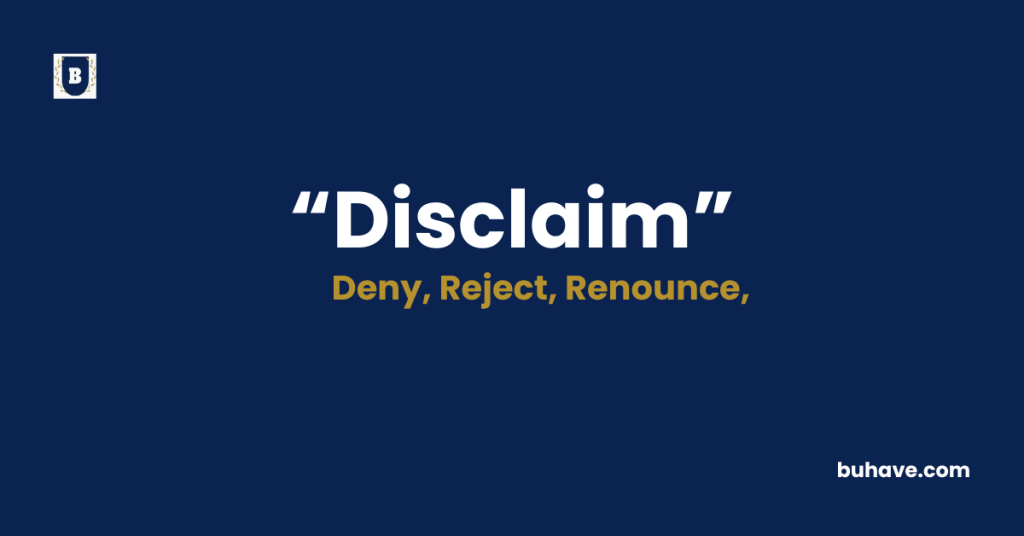The word Disclaim (Verb) means to deny, renounce, or refuse to accept responsibility for something, such as an action, statement, or claim. It often involves distancing oneself from association or ownership. In this guide, you’ll learn the full meaning, definition, etymology, synonyms, antonyms, and practical usage of the word ‘Disclaim’.
Disclaim Explained in Depth
A complete and detailed guide to the word Disclaim, including its meaning, definition, examples, etymology, synonyms, and antonyms.
Meanings of Disclaim
To disclaim is to deny any connection to, knowledge of, or responsibility for something. It can also mean to formally reject a legal claim or right.
Definition
Disclaim To deny responsibility for or connection with something; to renounce a claim or right formally.To disclaim is to deny any connection to, knowledge of, or responsibility for something. It can also mean to formally reject a legal claim or right.
Etymology
“Disclaim” comes from the Latin root clamare, meaning “to call or cry out,” combined with the prefix dis-, meaning “away” or “apart.” It entered Middle English in the 15th century via Old French desclamer and Medieval Latin disclamare.
Example Sentences
- He disclaimed any knowledge of the financial fraud.
- The celebrity disclaimed responsibility for the controversial tweet.
- She disclaimed her inheritance, allowing it to pass to the next beneficiary.
Disclaim Synonyms
- Deny
- Reject
- Renounce
- Disown
- Refute
- Abandon
- Repudiate
- Waive
- Decline
- Negate
Disclaim Antonyms
- Accept
- Acknowledge
- Admit
- Own
- Claim
- Support
- Assert
- Confirm
- Endorse
- Recognize
FAQs about Disclaim
Here are some frequently asked questions (FAQs) about the word “Disclaim”
1. Is ‘disclaim’ the same as ‘deny’?
Not exactly. ‘Deny’ is more general, while ‘disclaim’ often involves formally rejecting responsibility or a legal right.
2. What is a legal disclaimer?
A legal disclaimer is a statement that limits liability or responsibility, often used in contracts, websites, or product documentation.
3. Can someone disclaim a will?
Yes, a beneficiary can disclaim their inheritance, which means they voluntarily give up their right to receive it.
4. What does it mean to disclaim ownership?
It means to deny having any legal claim or association with the property or object in question.
5. Is ‘disclaim’ formal?
Yes, ‘disclaim’ is often used in formal or legal contexts, especially when referring to rights or responsibilities.

















